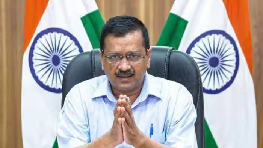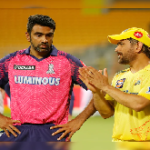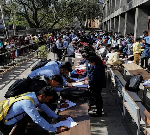Delhi Chief Minister Arvind Kejriwal has taken his case to the Supreme Court, challenging the High Court’s decision that denied his request to quash his arrest in the CBI investigation related to the excise policy scam. Additionally, Kejriwal has filed a petition seeking bail in the ongoing CBI case.
The Delhi High Court had earlier dismissed his petition challenging the arrest and advised him to seek bail from the trial court. While dismissing Kejriwal’s plea challenging his arrest, the HC stated that the prosecution has explained that, respecting his position as Chief Minister of NCT of Delhi, the police treaded with trepidation and caution and proceeded to collect the evidence from other persons suspected to be the accused. Consequently, extensive investigations were carried out across India to ascertain the entire web of conspiracy involving numerous persons.
In his plea to the Delhi HC, CM Kejriwal stated that he is the National Convenor of a National Political Party (Aam Aadmi Party) and the sitting Chief Minister of Delhi, who is being subjected to “gross persecution and harassment for wholly malafide and extraneous considerations.”
The court noted that the Investigating Agency has further explained that it is only after sufficient material was collected against the petitioner over a period of one and a half years, that they sought the sanction for prosecution of the petitioner, which was granted on April 23, 2024. The reasons for not proceeding immediately against the petitioner after registration of the FIR are thus well explained by the CBI and do not reek of malice.
The court further said “it is correct and true” that the petitioner herein is not an ordinary citizen of this country but is a distinguished holder of the Magsaysay Award and a convenor of the Aam Aadmi Party.
“The control and influence that he has over the witnesses, is prima facie borne out by the fact that these witnesses could muster the courage to be witnesses only after the arrest of the petitioner, as highlighted by the Special Prosecutor. Also, it establishes that the loop of evidence against the petitioner got closed after the collection of relevant evidence after his arrest. No malice whatsoever, can be gathered from the acts of the respondent,” the court observed.
While deciding the Kejriwal bail plea, the bench of Delhi High Court Justice Neena Bansal said, in the present case, it is more in the benefit of the petitioner, considering the complexity and the web of the facts and the material on record, to comprehensively determine the role of the petitioner in this alleged conspiracy to determine if he is entitled to bail.
“It may also be noted that when the bail application was filed before this court, the charge sheet had not been filed. However, in the changed circumstances, when the charge sheet has already been filed before the Special Judge, it would be in the best interest of the petitioner, to first approach the Court of Sessions Judge,” Justice Neena Bansal said.
Earlier on August 9, former Delhi Deputy CM and AAP leader Manish Sisodia was released from Tihar Jail after the Supreme Court granted him bail in connection with the Delhi excise policy case after almost 18 months.



